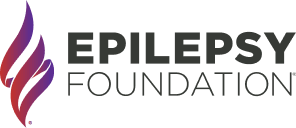TBCK-related ID Syndrome
A recent study published in the American Journal of Human Genetics provides evidence for how modern genetic approaches can aid in our understanding and potential development of treatment of neurologic disorders, including epilepsy. In this study, researchers from The Children's Hospital of Philadelphia analyzed DNA from 13 children with TBCK-related ID syndrome.
What Is TBCK-Related ID Syndrome?
TBCK-related intellectual disability syndrome is a rare syndrome. TBCK-related ID syndrome is caused by a genetic mutation carried by both parents. Children diagnosed with this syndrome have developmental delays that can range from moderate to severe and also have low muscle tone. In addition, some of the children also have seizures.
What Is TBCK?
TBCK (TBC1 Domain Containing Kinase) is the name of a gene. This gene codes for a protein of the same name.
This protein helps to regulate signals along the mTOR pathway in cells. The mTOR pathway is a key regulator of cell metabolism, growth, proliferation, and survival. In other words, the mTOR pathway is important in how cells function, grow, multiply, and survive.
The mTOR pathway is deregulated and doesn’t work properly in human disease. Abnormal signaling in the mTOR pathway has been shown to play a role in epilepsy, autism, and other forms of intellectual disability.
Scientists studying the role of TBCK in disease found that children with lower levels of the TBCK protein in their cells had slower cell mTOR signaling. They also were able to show that adding an amino acid called leucine to these cells increased the mTOR signaling. This finding is important as it suggests that leucine could potentially be used to treat children with this rare syndrome.
How Does This Advance Therapy?
This study provides hope for possible future genetic based therapies that are targeted to treat specific genes and cellular pathways. This may lead to further scientific discoveries and hopefully provide help for people with some types of epilepsy that have a genetic basis.
Resources
Epilepsy Centers
Epilepsy centers provide you with a team of specialists to help you diagnose your epilepsy and explore treatment options.
Epilepsy Medication
Find in-depth information on anti-seizure medications so you know what to ask your doctor.
Epilepsy and Seizures 24/7 Helpline
Call our Epilepsy and Seizures 24/7 Helpline and talk with an epilepsy information specialist or submit a question online.
Tools & Resources
Get information, tips, and more to help you manage your epilepsy.


